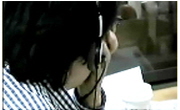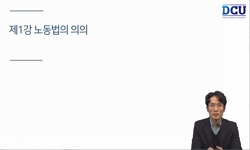This paper explores the representation of labor in Arnold Wesker’s play, The Kitchen. It explicates the ways in which the sinister vicious circle of labor, laborers, labor environment, a capitalist and the society are constructed in the kitchen at t...
http://chineseinput.net/에서 pinyin(병음)방식으로 중국어를 변환할 수 있습니다.
변환된 중국어를 복사하여 사용하시면 됩니다.
- 中文 을 입력하시려면 zhongwen을 입력하시고 space를누르시면됩니다.
- 北京 을 입력하시려면 beijing을 입력하시고 space를 누르시면 됩니다.
https://www.riss.kr/link?id=A105553448
- 저자
- 발행기관
- 학술지명
- 권호사항
-
발행연도
2018
-
작성언어
Korean
-
주제어
노동 ; 노동자 ; 노동환경 ; 자본가 ; 사회주의 ; 키친 싱크 ; 웨스커 ; 『부엌』 ; 악순환 ; labor ; laborer ; labor environment ; capitalist ; socialism ; kitchen sink ; Wesker ; The Kitchen ; the vicious circle
-
등재정보
KCI등재
-
자료형태
학술저널
- 발행기관 URL
-
수록면
5-31(27쪽)
-
KCI 피인용횟수
1
- 제공처
-
0
상세조회 -
0
다운로드
부가정보
다국어 초록 (Multilingual Abstract)
It also pursues how the play’s pseudo absurd theater techniques such as the fragmented plot development, undeveloped characters, the chaotic exchanges of words and movements, the isolated spaces contribute to the intensity of the vicious circle without providing the solution to the problems. This paper finds that both the cooks and Marango are portrayed as the components of the vicious circle. Because they do not have meaningful identity separated from their work, they do not seem to have means to escape or break the circle. The society that values money and shows lack of sympathy for the weaker and the poorer seem to be the main cause of the vicious circle. Also this paper probes whether there are clues to resolve the vicious circle in the play. Even though one of the goals of Wesker’s theater is to educate the laborers, The Kitchen asks questions to the audience about what to do with the vicious circle rather than provides concrete suggestions or definite guidelines to solve the problems. None of the characters attain the definite ideas about how to abolish the vicious circle. The communal social awareness of employment-friendly labor environment is not attained. In the play there is no easy exit from the vicious circle. What the audience is expected to do is to find the qualities that all of the staff, Marango and their society do not achieve, such as sensitivity to the capitalist working system, the future vision for the service industry and the sympathy for the underdogs. Obviously their insensitivity and ignorance block their exit. The play using the kitchen, the uglier version of the capitalist society, challenges the audience to see what would happen to themselves if they lack the education that Wesker’s theater intends to provide. While enriching the social play’s tradition with various non-representational characteristics, The Kitchen not only embraces the labor class who has been isolated from the British theater monopolized by the upper class but also attains the goal of education, as Wesker intended to.
This paper explores the representation of labor in Arnold Wesker’s play, The Kitchen. It explicates the ways in which the sinister vicious circle of labor, laborers, labor environment, a capitalist and the society are constructed in the kitchen at the restaurant Tivoli, the metaphor of the industrial capitalist society.
It also pursues how the play’s pseudo absurd theater techniques such as the fragmented plot development, undeveloped characters, the chaotic exchanges of words and movements, the isolated spaces contribute to the intensity of the vicious circle without providing the solution to the problems. This paper finds that both the cooks and Marango are portrayed as the components of the vicious circle. Because they do not have meaningful identity separated from their work, they do not seem to have means to escape or break the circle. The society that values money and shows lack of sympathy for the weaker and the poorer seem to be the main cause of the vicious circle. Also this paper probes whether there are clues to resolve the vicious circle in the play. Even though one of the goals of Wesker’s theater is to educate the laborers, The Kitchen asks questions to the audience about what to do with the vicious circle rather than provides concrete suggestions or definite guidelines to solve the problems. None of the characters attain the definite ideas about how to abolish the vicious circle. The communal social awareness of employment-friendly labor environment is not attained. In the play there is no easy exit from the vicious circle. What the audience is expected to do is to find the qualities that all of the staff, Marango and their society do not achieve, such as sensitivity to the capitalist working system, the future vision for the service industry and the sympathy for the underdogs. Obviously their insensitivity and ignorance block their exit. The play using the kitchen, the uglier version of the capitalist society, challenges the audience to see what would happen to themselves if they lack the education that Wesker’s theater intends to provide. While enriching the social play’s tradition with various non-representational characteristics, The Kitchen not only embraces the labor class who has been isolated from the British theater monopolized by the upper class but also attains the goal of education, as Wesker intended to.
목차 (Table of Contents)
- I. 들어가기
- II. 출구 없는 정신병원
- III. 고착화
- IV. 악순환의 해결은 가능한가?
- V. 나가기
- I. 들어가기
- II. 출구 없는 정신병원
- III. 고착화
- IV. 악순환의 해결은 가능한가?
- V. 나가기
- 인용 문헌
- Abstract
참고문헌 (Reference)
1 Morgan, Kenneth, O., "옥스퍼드 영국사" 한울아카데미 1995
2 "https://www.youtube.com/watch?v=MJvNwG6gJGw"
3 "https://www.theguardian.com/stage/2016/apr/13/arnold-wesker-interview-archive-1960"
4 "https://terms.naver.com/entry.nhn?docId=929728&cid=43667&categoryId=43667"
5 "http://www.telegraph.co.uk/culture/theatre/theatre-reviews/8749101/The-Kitchen-National-Theatre-review.html"
6 Wilcher, Robert, "Understanding Arnold Wesker" U of South Carolina P 1991
7 Wesker, Arnold, "The Wesker Trilogy" BaltimoreL Penguins 1971
8 Leeming, Glenda, "The Plays of Arnold Wesker: An Assessment" Victor Gollancz 1971
9 Spencer, Charles, "The Kitchen, National Theatre, Review"
10 Conley, Francine Heather, "The Kitchen (review)" 50 (50): 125-127, 1998
1 Morgan, Kenneth, O., "옥스퍼드 영국사" 한울아카데미 1995
2 "https://www.youtube.com/watch?v=MJvNwG6gJGw"
3 "https://www.theguardian.com/stage/2016/apr/13/arnold-wesker-interview-archive-1960"
4 "https://terms.naver.com/entry.nhn?docId=929728&cid=43667&categoryId=43667"
5 "http://www.telegraph.co.uk/culture/theatre/theatre-reviews/8749101/The-Kitchen-National-Theatre-review.html"
6 Wilcher, Robert, "Understanding Arnold Wesker" U of South Carolina P 1991
7 Wesker, Arnold, "The Wesker Trilogy" BaltimoreL Penguins 1971
8 Leeming, Glenda, "The Plays of Arnold Wesker: An Assessment" Victor Gollancz 1971
9 Spencer, Charles, "The Kitchen, National Theatre, Review"
10 Conley, Francine Heather, "The Kitchen (review)" 50 (50): 125-127, 1998
11 Fricker, Karen, "Review: ‘The Kitchen’"
12 Lacey, Stephen, "Naturalism, Poetic Realism, Spectacle: Wesker’s ‘The Kitchen’ in Performance" 12 (12): 237-248, 1996
13 Wesker, Arnold, "Kitchen/ The Four Seasons/ Their Very Own and Golden City" Penguin 1981
14 Shepherd, Simon, "English Drama: A Cultural History" Blackwell 1996
15 Bigsby, C.W.E., "Contemporary English Drama" Edward Arnold 11-52, 1981
16 Shellard, Dominic, "British Theatre Since the War" Yale UP 1999
17 Hinchliffe, Arnold P., "British Theatre 1950-1970" Basil Blackwell 1974
18 Wesker, Arnold, "As Much as I Dare: An Autobiography (1932-1959)" Century 1994
19 Dornan, Reade, "Arnold Wesker: A Casebook" Garland 1-13, 1998
20 Dornan, Reade, "Arnold Wesker: A Casebook" Garland 1998
21 King, Kimball, "Arnold Wesker: A Casebook" Garland 119-129, 1998
22 "Arnold Wesker-interview Transcript"
23 Hayman, Ronald, "Arnold Wesker" Frederick Ungar 1973
동일학술지(권/호) 다른 논문
-
- 한국현대영미드라마학회
- 조연이(Cho, Yeon-iee)
- 2018
- KCI등재
-
필립 칸 고탄다의 가족극에서 트라우마의 공간화와 상처의 치유
- 한국현대영미드라마학회
- 정병언(Jung, Byung-eon)
- 2018
- KCI등재
-
향수는 질병이야!: 린 노티지의 Sweat에 나타난 신자유주의와 21세기 미국의 지형도
- 한국현대영미드라마학회
- 전연희(Chun, Yon-hee)
- 2018
- KCI등재
-
테네시 윌리엄즈의 A Streetcar Named Desire
- 한국현대영미드라마학회
- 윤희억(Yoon, Hee-uhk)
- 2018
- KCI등재
분석정보
인용정보 인용지수 설명보기
학술지 이력
| 연월일 | 이력구분 | 이력상세 | 등재구분 |
|---|---|---|---|
| 2027 | 평가예정 | 재인증평가 신청대상 (재인증) | |
| 2021-01-01 | 평가 | 등재학술지 유지 (재인증) |  |
| 2018-01-01 | 평가 | 등재학술지 유지 (등재유지) |  |
| 2015-01-01 | 평가 | 등재학술지 유지 (등재유지) |  |
| 2014-02-06 | 학술지명변경 | 외국어명 : The Journal of Modern British and American Drama -> Journal of Modern English Drama |  |
| 2011-01-01 | 평가 | 등재 1차 FAIL (등재유지) |  |
| 2009-01-01 | 평가 | 등재학술지 유지 (등재유지) |  |
| 2007-01-01 | 평가 | 등재학술지 유지 (등재유지) |  |
| 2004-01-01 | 평가 | 등재학술지 선정 (등재후보2차) |  |
| 2003-01-01 | 평가 | 등재후보학술지 유지 (등재후보2차) |  |
| 2002-01-01 | 평가 | 등재후보 1차 PASS (등재후보1차) |  |
| 2001-01-01 | 평가 | 등재후보학술지 선정 (신규평가) |  |
학술지 인용정보
| 기준연도 | WOS-KCI 통합IF(2년) | KCIF(2년) | KCIF(3년) |
|---|---|---|---|
| 2016 | 0.16 | 0.16 | 0.19 |
| KCIF(4년) | KCIF(5년) | 중심성지수(3년) | 즉시성지수 |
| 0.18 | 0.17 | 0.674 | 0.04 |





 DBpia
DBpia






